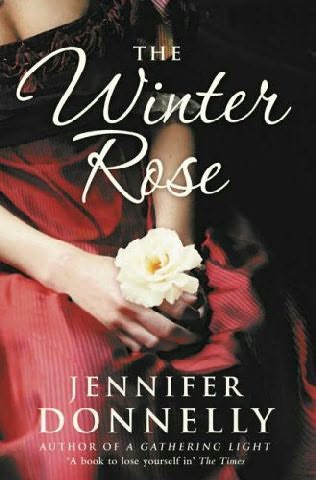 In case anyone cares, I'm going to throw out my two cents on the last installment of the Twilight series by Stephenie Meyer. SPOILER ALERT!
In case anyone cares, I'm going to throw out my two cents on the last installment of the Twilight series by Stephenie Meyer. SPOILER ALERT!I really liked it. I know a lot of people didn't, and I know a lot of people have problems with the entire series. (For instance, Edward is too controlling and possessive.) That would probably bother me if these weren't books about teenage vampires. But since they are, I don't take it all too seriously. Not only is this fiction, it is fiction that could never, ever happen. I will even admit that at first I was a little bothered by the fact that Bella was so willing and eager to give up her life for Edward, but again I decided that I shouldn't take it too seriously. But I honestly feel like Breaking Dawn resolved some of the uneasiness I felt about the whole series.
For instance, I was never crazy about Bella becoming a vampire, even though the romance-novel-reader in me wanted them to be together forever. So when Bella's turning became a necessity instead of just a wish, I felt a lot better about it. Well played, Stephenie.
Also, I never liked Jacob's relationship with Bella because it made me uncomfortable that he was so obsessed with her when she wanted to be with Edward. So the whole imprinting on Bella's daughter was actually a clever solution to the problem, I thought. Yes, yes, some people think that's creepy. To them I say this: we're talking about a werewolf "imprinting" on a half-vampire child. Don't you think we can suspend reality enough in such a situation to believe that there is nothing gross in the relationship? I mean, if you're going to accept that he's a werewolf and she's a half-vampire, it's not too much more of a stretch to accept that their relationship is not within traditional human understanding, is it not? I thought the whole thing was an excellent solution to the problem I'd always had. Again, well played.
Some reviewers are saying Meyer just appeased everyone, but who the hell cares? These are books for teens, really. I really, really thought for a good while there that she was going to kill them all off and have them have a happily ever after in vampire heaven. Because that was kind of a question that lingered through the series--do vampires have an after-afterlife? And at one point in Breaking Dawn Meyer had Bella thinking that if there was an afterlife she could spend with Edward then that would be her "happily-ever-after." Considering that I had already seen that the title of the last chapter was "Happily-ever-after" I was sure everyone was going to die. So I was pleased that everyone didn't die. IT'S OKAY FOR BOOKS TO END HAPPILY, ISN'T IT?
My only complaint is in the biology (how can Edward get a stiffy IF HE HAS NO CARDIOVASCULAR SYSTEM?), but I can easily get over that. Suspend belief.
I think that people who have serious problems with this book and the whole series need to lighten up. They're inherently silly books, really. I read them for pure entertainment value and I'm glad that the entertainment aspect of them was preserved in the finale.
Well played, Stephenie Meyer. Well played.
Lindsey's Grade: A-

































 This book looks great. I was surprised to find a review of it in Ms. magazine because it sides on romance but maybe Ms. is loosening up a bit. As I was reading the review I was reminded of one of my favorite books, The Interpreter of Maladies by Jhumpa Lahiri. The notion of a foreigner in new places, learning new cultures and new aspects of identity has always been a theme I've identified with, however this book looks heavenly as is.
This book looks great. I was surprised to find a review of it in Ms. magazine because it sides on romance but maybe Ms. is loosening up a bit. As I was reading the review I was reminded of one of my favorite books, The Interpreter of Maladies by Jhumpa Lahiri. The notion of a foreigner in new places, learning new cultures and new aspects of identity has always been a theme I've identified with, however this book looks heavenly as is.


